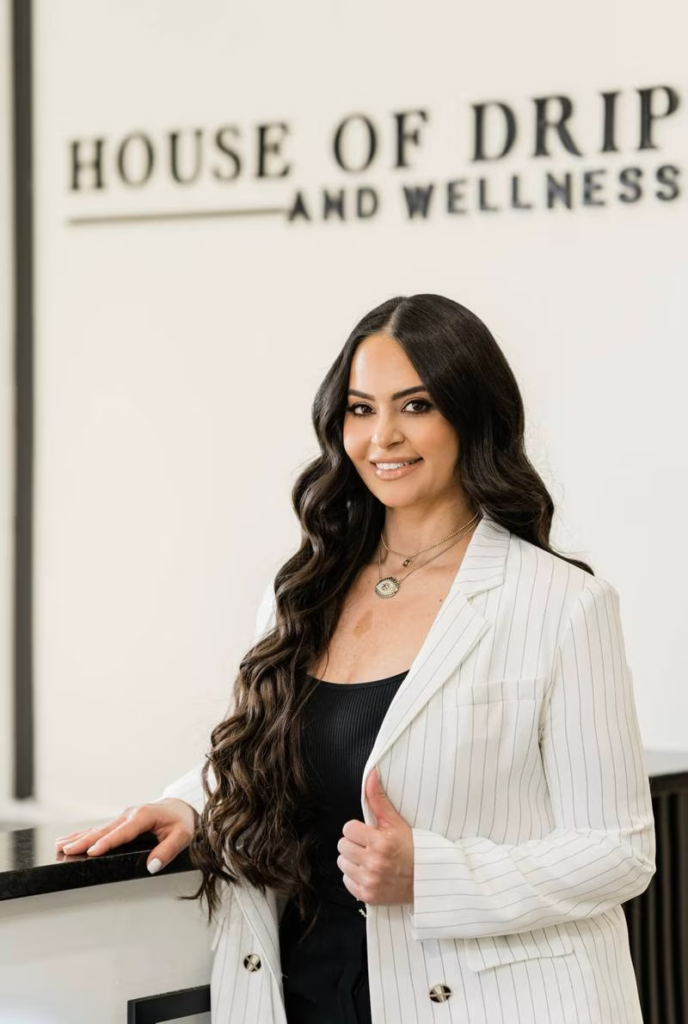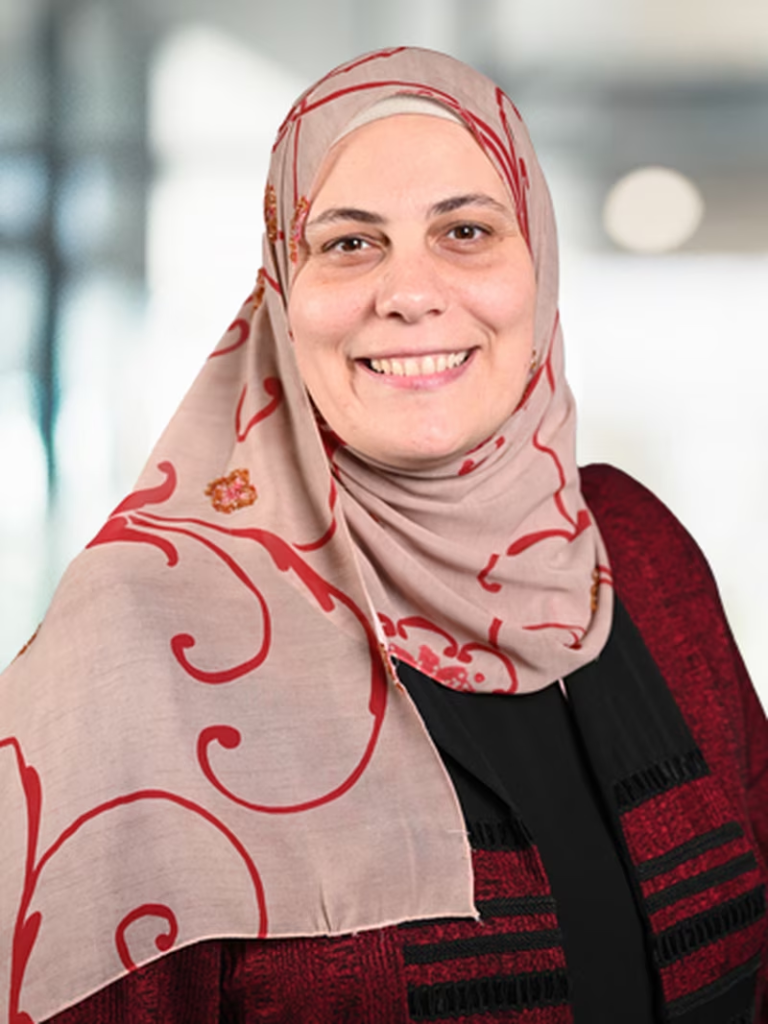Three entrepreneurs share their stories as well as tips to succeed, regardless of background
Steve Jobs, Tony Fadell of iPod and Nest thermostat fame, and Taher Elgamal, the father of SSL technology, may be some of the most successful Arab Americans the global tech world has seen – but bit by bit, that picture is starting to change.
An emerging group of Arab-American women is increasingly taking up the tech mantle in a host of diverse fields.
A year spent in Kansas as a cultural exchange student at the age of 17 led to Morocco native Yasmine El Baggari feeling a profound need to help people connect.
“Most people [in Kansas] had never met someone from Morocco before. It felt like I was a cultural ambassador for Morocco at every opportunity,” she says.
The experience morphed into something more: a road trip to all 50 US states, during which she stayed with families and taught French and Arabic to get by, and later, a career that has seen her visit more than 45 countries – while securing a degree from Harvard University along the way.
All this led Ms El Baggari to found Voyaj, an online platform that fosters connections between people from diverse backgrounds in all corners of the globe.
“Once you build a human connection with someone, they’re more open to considering different perspectives … which is the basis of the work I continue to do: building and facilitating connections with people around the world,” she says.
Voyaj has collaborated with organisations to bring dozens of students from Africa to California for cultural exchange trips.
In March, Ms El Baggari raised more than $50,000 through a crowdfunding campaign involving more than 260 people from 40 countries to help fund the app.
Recently, Voyaj started working with non-profit Alight to help connect Afghan refugees recently arrived in Minnesota with local residents.
With the number of immigrants from the Middle East and North Africa in the US doubling over the past 20 years to 1.2 million, Arab-American women are set to play an increasing role in the tech and entrepreneurial landscape.
But getting to the top is not easy – just ask serial achiever Sherien Youssef.
Born and raised in Cairo, she emigrated to the US aged 11.
“My parents gave up a lot in Egypt to come here. They were comfortable there, but wanted a better life for their children,” she says.
Now living in a suburb of Washington, Ms Youssef is a senior executive and vice president at CGI, a major IT and consulting multinational that employs more than 90,000 people in about 40 countries.
It has taken serious determination to get to where she is.
“Growing up, being Arab American and being a Muslim, it wasn’t easy to find a person that looked like me [in this industry],” she says.
“It wasn’t very prevalent in my field. When you come as an immigrant, you have a desire to be constantly working harder and proving yourself over and over again.”
Today, her professional life consists of speaking at conferences, working closely with chief executives at partner companies and mentoring staff.
Having raised a family, grown her career and secured an MBA, she says there is still room for change.
“This is still a male-dominated field. We don’t see as many women in the C suites in the IT field,” she says.
Health and wellness is another area Arab-American women are making inroads.
For 12 years, Megan Moslimani was a dedicated public servant, working as a lawyer for the city of Detroit and serving as a board member of the Detroit Bar Association.
But a trip to Los Angeles in 2016 made her realise health care and wellness were industries on the up, and that IV drip therapy could be a game-changer.
“We visited different medical spas for fun and to enjoy the luxury experience. I was impressed with the way you could feel instantly better and hydrated [from using the drips],” she says.
Last spring, Ms Moslimani, whose family arrived in the US from Lebanon in the early 19th century, and her colleague, Biane Bazzy, dove headfirst into their passion, opening the House of Drip & Wellness in Dearborn, Michigan.
American designer brings hijabs to the high street
Made popular by celebrities such as the Kardashians and Hailey Bieber, and appearing in popular TV shows such as Billions, restorative IV drip therapy is a way to get vitamins, electrolytes and other nutrients into the bloodstream quickly.
It is believed to help people recover more quickly from illnesses, jet lag, fatigue and other ailments.
“Clients feel results instantaneously as the drip directly enters the bloodstream, bypassing the digestive tract,” she says.
“People love instant gratification, and I knew all could benefit – athletes, tired mums, overworked professionals.”
Restorative IV drip therapy spas or “drip bars” are springing up in strip malls and neighbourhoods across the US. With the global wellness industry estimated to be worth about $1.5 trillion and expected to grow by 5 per cent to 10 per cent per year, IV drip therapy is set to become an important health recovery tool.
For Arab-American women thinking about starting out in the tech and entrepreneurial worlds, the trio have tips to share.
Ms Moslimani says it is important to be prepared to spend money on the right things to grow your business.
“Look for attorneys offering pro bono hours and get real business law advice,” she says.
Ms El Baggari says getting past the stigma of asking for help is essential to succeeding as an entrepreneur.
“Don’t be afraid to ask for what you need – if people say no, that’s OK,” she says. “You want a clear sense of mission. Understand your ‘why?’”
For Ms Youssef, investing in yourself is key, “whether it’s in degrees and certificates, or in networks”.
“Oftentimes it’s the relationships and connections that you make will be the reason that you get to the next step in your career,” she says.
source/content: thenationalnews.com (headline edited)
_____________

Last spring, Megan Moslimani and a colleague launched the House of Drip & Wellness in Dearborn, Michigan. Photo: Megan Moslimani

Yasmine El Baggari is the founder of Voyaj, an online platform that fosters connections between people from diverse backgrounds. Photo: Yasmine El Baggari

For Sherien Youssef, investing in yourself is key, ‘whether it’s in degrees and certificates, or in networks’. Photo: Sherien Youssef
______________________________________________________
AMERICAN / ARAB / EGYPT / LEBANON / MOROCCO